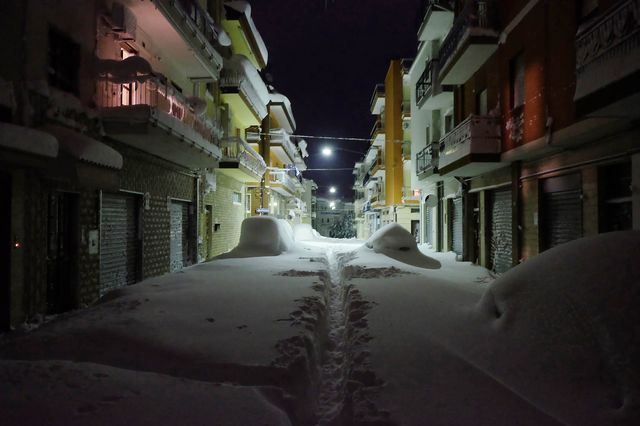
From Greece to Hungary, hydroelectric production plummeted as temperatures fell as low as minus 20 degrees Celsius (minus 4 Fahrenheit) and parts of the Danube river were almost entirely covered with ice. Bulgaria, Romania and Serbia deployed emergency services to evacuate remote villages where people were stranded without electricity or heat.
Bulgaria declined emergency requests for power from Greece and Turkey amid heavy snowfall, Energy Minister Temenuzhka Petkova said Tuesday in the capital Sofia. The country was itself turned down by Romania two days ago and Greece said it would stop electricity exports to Bulgaria from noon Wednesday.
“The market is really panicking because of the extreme weather,” said Tamas Migaly, a trader with energy broker 42 Financial Services in Prague. “With all these outages, people just don’t know what to expect.”
Power prices jumped to unprecedented levels in Hungary, with the spot price for round-the-clock delivery jumping to 200 euros ($210) a megawatt-hour on Tuesday and fluctuating, Migaly said. Serbian contracts shot to a record on Tuesday, reaching about 150 euros a megawatt-hour, according to Milos Mladenovic, managing director of the Seepex exchange in Belgrade. The price for same-day electricity on Bulgaria’s Ibex exchange peaked at about 109.80 euros a megawatt-hour, according to the exchange’s website.
From Croatia to Turkey, the unusually cold weather in the Balkans may persist throughout the week, according to MDA Weather Services. Temperatures in the region are forecast to average minus 6.4 degrees Celsius next week, 6.8 degrees below the 10-year average, according to The Weather Co. data.
Around 23,000 Bulgarian households have been left without electricity and the country’s two main Black Sea ports were closed due to severe weather conditions. In Romania, about 14,000 households have been stranded.
“The whole region is relatively dependent on hydro plants, which now produce less than usual while consumption soars,” Mladenovic said.
The power shortage in the region is further exacerbated by nuclear outages. Romania had to disconnect its 700-megawatt Cernavoda-1 reactor twice in the past week after a blizzard damaged a high-voltage power line. Hungary, which already had outages at several thermal stations, plans to switch off its Paks-2 reactor for 3 days on Jan. 13.
Prices throughout Europe have risen amid the cold, with the French contract for next week jumping as much as 99 percent on Tuesday and 18 percent on Wednesday, while Hungarian day-ahead prices jumped 110 percent to a record yesterday, according to broker data compiled by Bloomberg.
Greek Energy Minister George Stathakis called an emergency meeting on Tuesday to coordinate uninterrupted electricity and gas supply to consumers because of extreme conditions in the country, the Athens-based Ministry of Environment and Energy said in an e-mailed statement. The ministry urged consumers to avoid unnecessary consumption of power and gas during the peak hours from 6 p.m. to midnight, it said.
Image: Bloomberg

